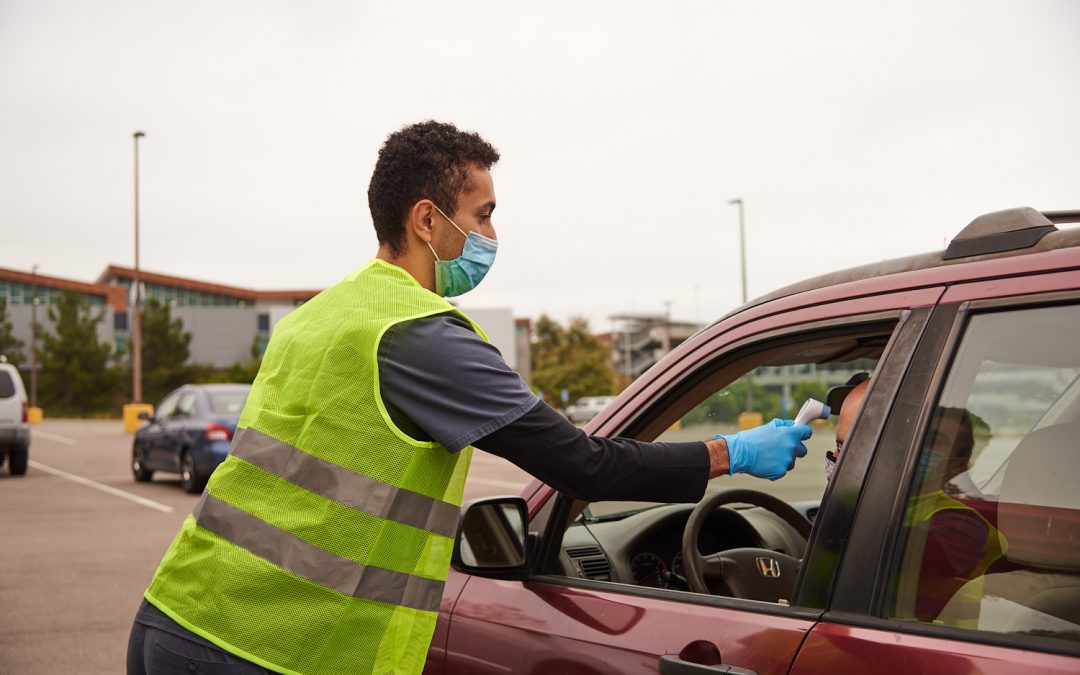Every essential employee, student and visitor is being screened for symptoms in drive-through stations staffed by student volunteers from the Nursing Department.
SAN MARCOS — A new COVID-19 screening program has brought nursing students back to Palomar College after the program suspended face-to-face instruction in the spring due to social distancing requirements in the state of California.
While providing a crucial service for the campus at large by screening anyone coming to campus for symptoms, the students are also gaining clinical hours which are required in addition to classroom work every semester.
The screenings entail a temperature screening with no-contact forehead thermometers and a brief questionnaire—all told, less than a minute per person. Those who show no symptoms of COVID-19 are given a sticker to wear while they’re on campus.
“We’re doing the best we can to get students good experience while we’re dealing with COVID-19,” said Amy Hinchman, Academic Department Assistant in the Nursing Department. “We’re taking a different approach to how we do our clinicals; our instructors are so passionate, and we all want our students to succeed.”
With two entry points to the San Marcos campus, the screening stations are located in Lot 12 off the Las Posas Road entrance and in Lot 1 at the front of campus, off Mission Road. These are currently being staffed all day long, Monday through Friday, with a shorter window on Saturday. A screening station is also up and running at the Escondido Education Center with more limited hours.
“Our top priority is mitigating the spread of COVID-19, and we’re thrilled that in protecting the campus, our nursing students are also able to record some of the hours that are required in order to become Registered Nurses,” said Interim Superintendent/President Dr. Jack Kahn.
The nursing program at Palomar College is four semesters long and widely respected within the region’s medical community. In March, as all classes were transitioned to a remote learning format, the program was forced to suspend many of its classes, although state officials agreed to allow students to simulate more of their required clinical hours.
In the past, students typically fulfilled their clinical requirements in hospitals and other patient-care situations, but with the onset of COVID-19, those opportunities have dwindled.
“We’re obviously not getting as many placements in the hospitals, so we’re using the screening sessions to offset the in-hospital requirements,” said Hinchman. “These stations do count as direct patient-care hours.”
On Friday morning, at the Las Posas Road station, Jennifer Bennet, a fourth-semester nursing student, said that people coming onto campus have been mostly cooperative and friendly about being screened inside their cars.
“I think everyone knows this is the new norm,” said Bennett, adding that, as students at the mercy of statewide health regulations, “We’re happy to take anything we can get, and to be able to help.”

